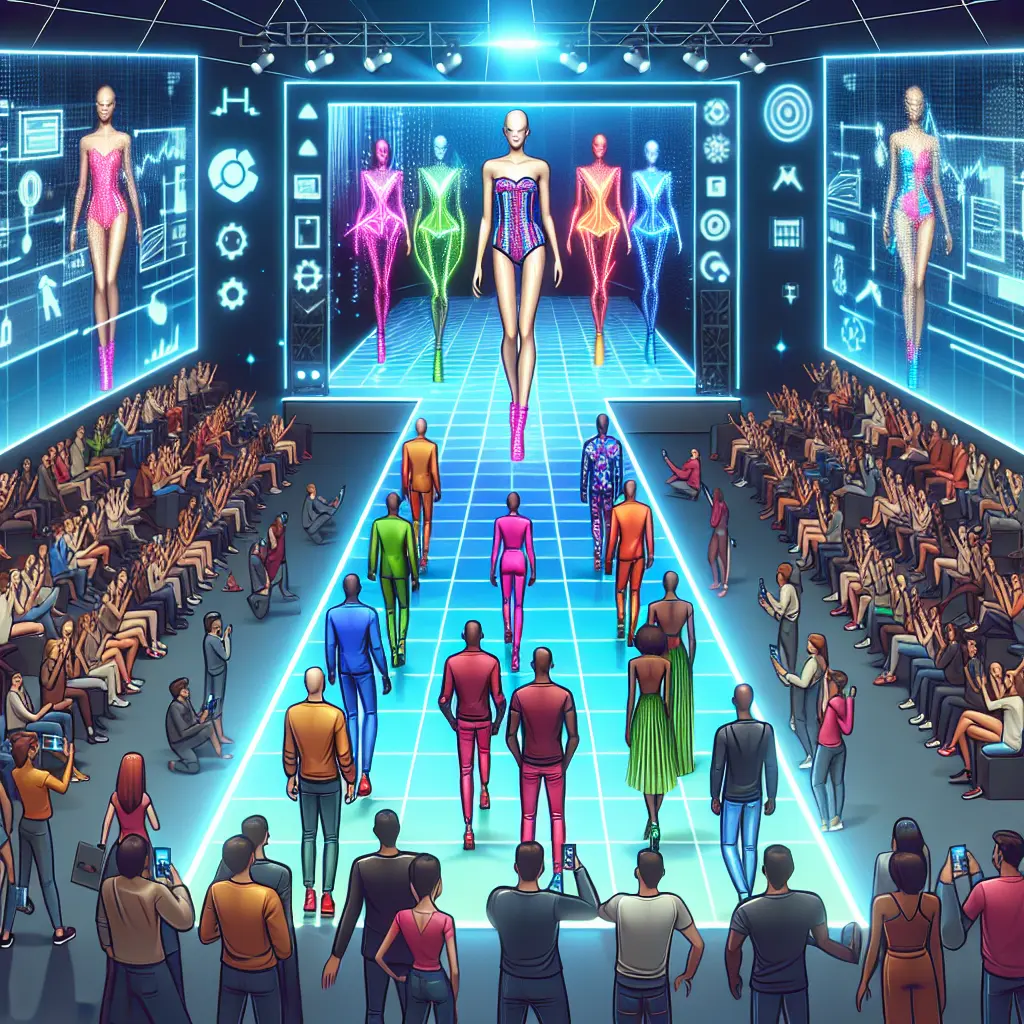
Exploring the Rise of Virtual Influencers in Fashion Marketing
In an era where technology is revolutionizing industries, the fashion sector stands at the forefront of this digital transformation. The emergence of virtual influencers is reshaping the landscape of fashion marketing, marking a new chapter in the industry’s evolution. These AI influencers and virtual models are not merely a fleeting trend but a significant development within fashion industry trends. They represent a fusion of digital fashion and technology, serving as a testament to the ever-evolving nature of fashion innovation.
In the rapidly evolving landscape of fashion marketing, the emergence of virtual influencers signifies a transformative shift that combines cutting-edge technology with creative storytelling. As digital fashion continues to blur the lines between reality and fantasy, brands are leveraging AI-driven personas to redefine consumer engagement and brand narratives.
The Intersection of Reality and Fantasy: Virtual Influencers and Digital Fashion
Virtual influencers, with their AI-crafted personas, are at the forefront of this digital revolution. Unlike traditional social media influencers, these digital entities offer brands a unique opportunity to engage audiences without the constraints of physical limitations. This is where innovations like Live2Diff come into play. Developed by an international team from Shanghai AI Lab, Max Planck Institute, and Nanyang Technological University, Live2Diff utilizes uni-directional attention in video diffusion models, allowing for near real-time stylization of live video streams. Such technology enables brands to create immersive virtual fashion experiences that captivate and inspire, pushing the boundaries of creative expression.
AI Influencers: Pioneers of Fashion Innovation
AI influencers are not just a passing trend but a pivotal element of contemporary fashion marketing strategies. They embody a fusion of technology and fashion innovation, offering insights into consumer behavior and enhancing the effectiveness of virtual influencer campaigns. By analyzing vast datasets, AI tools can identify ideal collaborators, optimize content performance, and even generate personalized messaging tailored to specific audience segments. This strategic approach ensures that brands remain at the cutting edge of fashion industry trends, continuously evolving to meet the needs of their audience.
Virtual Reality Fashion: Crafting Immersive Experiences
The integration of virtual reality in fashion marketing has opened new avenues for brand engagement. Virtual reality fashion allows brands to craft immersive experiences that transcend traditional marketing methods. Through platforms like metaverse fashion, consumers can interact with virtual models and digital influencers in a dynamic and engaging environment. This shift towards virtual brand ambassadors offers limitless possibilities for storytelling, enabling brands to connect with their audience on a deeper level.
The Impact of Virtual Influencers on Social Media Platforms
Social media remains a powerful tool for influencer marketing, with virtual influencers leading the charge in redefining brand narratives. These AI-driven personas have the capability to engage audiences across multiple platforms, creating a cohesive and compelling brand message. As explored in recent studies, the use of LinkedIn for influencer marketing has shown promising results. By leveraging LinkedIn's professional network, brands can effectively target niche audiences and enhance their brand visibility.
Challenges and Opportunities: Navigating the Virtual Frontier
While the rise of virtual influencers presents exciting opportunities, it also poses challenges that brands must navigate. One such challenge is maintaining authenticity in a digital world where parasocial relationships can skew perceptions. Brands must strike a balance between leveraging virtual influencers for their scalability and maintaining genuine connections with their audience. This delicate balance is crucial for ensuring long-term success in the ever-evolving world of influencer marketing.
Case Studies: Success Stories in Virtual Influencer Campaigns
Several brands have successfully integrated virtual influencers into their marketing strategies, setting new standards in consumer engagement. For instance, Lil Miquela, a virtual influencer with over 3 million Instagram followers, has collaborated with major fashion brands like Prada and Calvin Klein. These partnerships demonstrate the potential of virtual influencers to drive brand awareness and foster meaningful connections with consumers.
Another notable example is Balmain's collaboration with CGI model Shudu, who became an ambassador for their virtual collection. By embracing digital fashion and virtual models, Balmain not only enhanced its brand narrative but also positioned itself as a leader in fashion technology innovation.
Conclusion: Navigating the Future of Fashion Marketing with Virtual Influencers
The rise of virtual influencers marks a significant milestone in the evolution of fashion marketing. By harnessing the power of technology, brands can create compelling narratives that engage audiences on a global scale. As we navigate this digital renaissance, it's essential to explore how these innovations are reshaping brand narratives and setting new standards in consumer engagement. With virtual influencers at the helm, the fashion industry is embarking on an exciting journey into uncharted territories.
As we look toward the future, embracing digital transformation is crucial for staying ahead in the fast-paced fashion industry. Virtual influencers and AI models offer vast potential for creativity and innovation, inviting brands to pioneer new marketing strategies that resonate with today's consumers.
The fashion industry's journey into this digital age is filled with exciting possibilities. To stay at the forefront, it's essential to explore current case studies and technological advancements that shed light on the future of fashion marketing.
Let's continue this conversation: What are your thoughts on the rise of virtual influencers? Have you encountered any remarkable campaigns or innovations in digital fashion? Share your experiences and insights in the comments below. Together, let's redefine the future of fashion marketing.
Embrace the digital renaissance and lead the charge into new territories. Until next time, keep innovating!
Author: Jeremy Collins